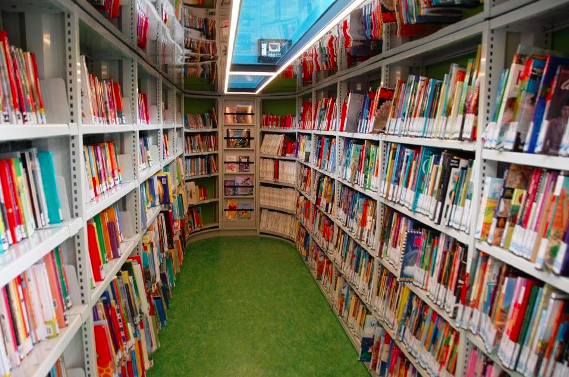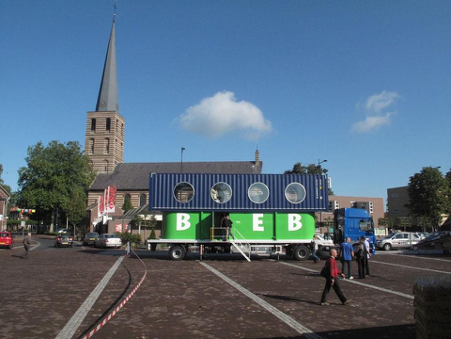Johnathan Bulmer, MD at Cleveland Containers, explores why libraries built out of containers can extend social development areas, create an experience, be less expensive to run, and less harmful to the environment to build
Libraries are facing one of the greatest challenges in its history. Recent figures show that the number of people who visited a public library in England is at its lowest in history, according to stats from the Department for Digital, Culture, Media and Sport.
Despite this, reading is flourishing, with a new survey finding that people in the UK doubled the time they spent reading during lockdown. So why are libraries decreasing, with their offer of quiet space and free books?
Of course, one of the reasons less people may be going to the library is the advancement of the internet and what it offers us. If people invest in a Kindle, they can get hundreds of not just cheap, but free books to read.
But for many, libraries represent their childhood, a place to escape into the literary world. Libraries are vital public spaces, creating a community which doesn’t discriminate based on income or class.
A recent government study found that the top two groups who are most likely to use the public library come from the least deprived and most deprived backgrounds in the UK. It is important to note that libraries can help with the digital gap and those who struggle to access technology due to financial constraints.
How can we encourage more people to go to the library?
Many writers attribute libraries to their success. Libraries give people a passion for reading in their infant years, a place to feel comfortable and safe, and even an extension of their home.
While the digital essence of reading is becoming more popular, people enjoy libraries for more than just the idea of taking a book out – it’s the experience. Kids enjoy having fun with their friends in the play area, going to a puppet or writing workshop, or just seeing what new books are available. A lot of people don’t live close to a library anymore, and people value accessibility. But what if you could take the library closer to them?
Portable libraries offer a mix of experience, accessibility and novelty
Mobile libraries are not a new concept, but transforming used shipping containers into them to give them a more contemporary, sci-fi feel is.
BiebBus is a mobile container-based in The Netherlands, which has the ability to let kids have fun and explore the world of books before travelling on to a new place. We all love novelty and shiny new things, and can often get bored when things stay the same. With portable, alternative libraries which are only in town for a limited amount of time, people may feel more of a need to visit. It’s new, and it’s an experience people can try out with their friends.
More and more millennials are choosing experiences over ‘things’, and we can only expect that to transcend to Generation Z. You should also consider social media – book lovers adore posting quirky book locations online.
A portable, container library has the potential to excite, to look different to the standard architecture of a library, and create experiences.
They don’t discriminate on the basis of location
Britain has closed almost 800 libraries since 2010, which means there will be more residents without a library nearby. Accessibility is paramount, if they don’t have a library nearby then residents will be unlikely to travel.
For those who don’t have access to cars, and have to rely on public transport, they may not see libraries as essential enough to travel to.
Many authors have come forward to say that without their local public libraries, they would never have been able to get into the industry. Libraries which are accessible not only have great community value, but they provide young and older people with the recreational chance to read and learn.
Case study: Rwanda
While container libraries in the UK are not mainstream yet, there is a precedent in other countries, such as Rwanda. They don’t have a public library network, and so charity BookAid developed its very first Voyager Container Library, made out of a 40-foot shipping container, which is now filled with 5,000 brand new books. It gives the children and the community access to new books, and the ability to learn and share their experiences.












